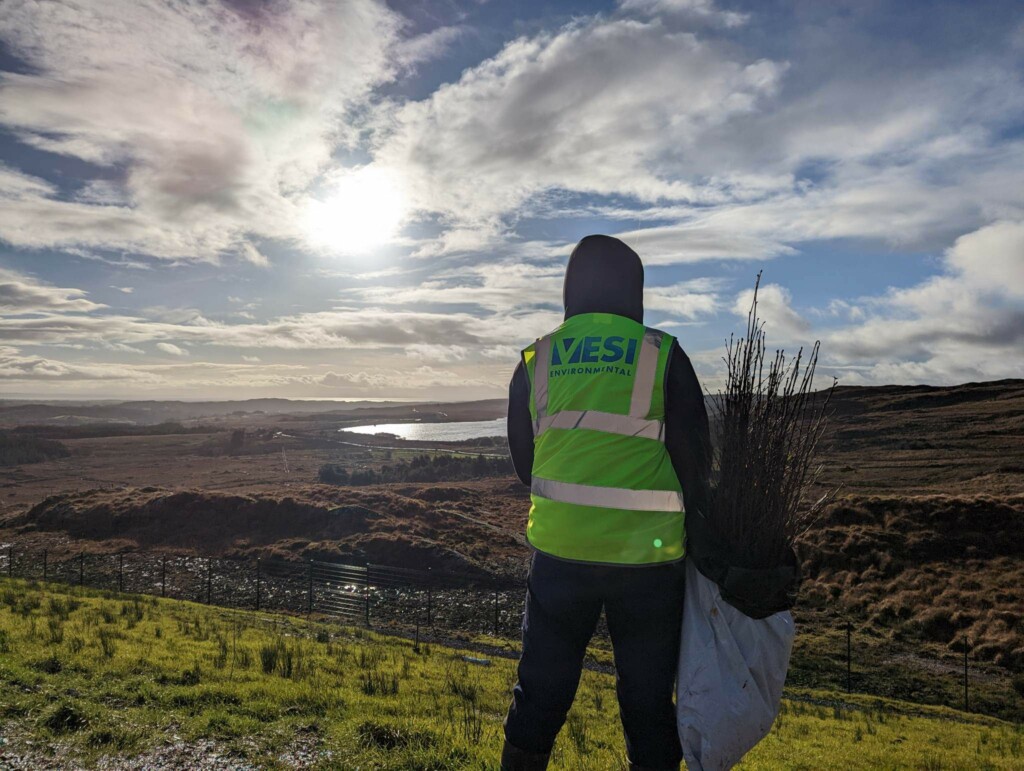Ultan Duggan

What employment sector do you work in?
Private Sector
How long have you had a green job for nature?
3 years
Salary Range
£25,001 – £30,000
Please describe the work that you do.
I am an ecologist working for VESI Environmental, a company specialising in the design and development of Integrated Constructed Wetlands (ICWs), a sustainable, Nature Based Solution to the management of wastewaters. ICWs are applicable across a range of sectors from small scale domestic systems to large scale municipal, industrial and agricultural systems. ICWs have a plethora of additional benefits from amenity, education and ecotourism to biodiversity enrichment and habitat creation.
What do you most like about your job? Any dislikes?
My day to day work can range from desk based activities such as background information gathering on a new site, GIS mapping and input on planning applications to field based activities such as habitat assessments, species identification, site supervision and water sampling. While I have great exposure to a range of tasks, I have become particularly involved with carrying out Appropriate Assessment Screening Reports, Natura Impact Statements (NIS), Construction Environmental Management Plans (CEMP) and similar documents required for the planning and/or construction phase of a project. These, of course, all require detailed site assessments to appropriately inform the material and recommendations that I would include in the reports. In the field, I use a variety of ever-evolving skills such as habitat and species identification, habitat mapping and data collection, ensuring that I obtain as much information relevant to my task as possible.
I like the variety in my role. From a quiet day of report writing at the office to walking through a dense woodland on a habitat survey, I am always kept busy in new and interesting ways. Additionally, I constantly get to work with new people from clients and landowners to local authorities and environmental agencies.
What I dislike the most is that as an ecologist, I can sometimes be involved with a project at a later stage than is optimal. I imagine this is a hurdle that many ecologists run in to. Being brought on board later in the project timeline can result in a variety of complications and delays as you feel like you are playing catch up!
What inspired you into this career?
I have always been interested in better understanding the interactions between living organisms and their environment. I knew I was happiest outdoors, learning practically by doing rather than reading about it in a book (although theory is important too!).
Have you faced any challenges in progressing your career so far?
I was lucky in that I had this job secured a few weeks before I finished my degree. I went right in to this role as a fresh graduate. I work with experts across a range of disciplines such as environmental science, zoology, forestry, civil engineering, and geotechnical engineering, allowing us to share knowledge and work through any challenge that comes our way. However, as the only ecologist, some tasks can be a particular challenge, especially if I have to start from scratch and inform myself via research papers or through training. Additionally, I can not bounce ideas off of other, more experienced ecologists like you could do in a larger company.
I choose to see this as a positive however, as it drives me to focus more on professional development, effective communication and trusting my ever evolving experience and judgement.
What education/training did you have?
I have a BSc (Hons) in Wildlife Biology through Munster Technological University (MTU). Following that, I have constantly upskilled with training in areas such as bat identification and mitigation, ecological risk management in construction, habitat and species identification. Perhaps even more important, than the formal training, I have exposed myself to new learning opportunities through my career as each new site has new challenges to face.
What advice would you give to someone coming into the profession?
Don’t be afraid to ask questions when you are unsure, ask for help when needed and admit when a particular challenge might be a little above your experience level. I am not saying to avoid taking on a new challenge but there will be a time where you are given a task that you simply don’t have the expertise to appropriately undertake. Realising that and ensuring that the appropriate person for that task is brought in is a sign that you know your boundaries and you prioritise getting the job done.
—
Tags: Republic of Ireland, Private sector, Ecologist, Data and mapping roles, Freshwater/Catchment
Date profile submitted: 22/07/2024
